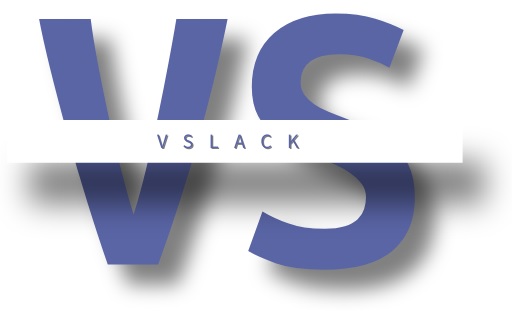Technology has been shaping our world at an unprecedented pace, and the next decade promises even more transformative changes. From healthcare to education, transportation to entertainment, advancements in technology are poised to revolutionize every aspect of our lives. Let's explore seventeen ways in which technology could change the world by 2027.
Healthcare Revolution
The healthcare industry is on the brink of a revolution, thanks to advancements in technology. Telemedicine and remote patient monitoring are making healthcare more accessible and convenient than ever before. Patients can now consult with healthcare professionals from the comfort of their homes, saving time and reducing the burden on healthcare facilities.
Education Transformation
Technology is transforming the way we learn and teach. Virtual classrooms and online learning platforms are breaking down geographical barriers, allowing students to access quality education from anywhere in the world. AI-powered tutoring and personalized education are catering to individual learning styles, ensuring that every student receives the support they need to succeed.
Transportation Innovation
The transportation industry is undergoing a major transformation with the advent of autonomous vehicles and flying cars. These futuristic modes of transportation promise to revolutionize urban mobility, reducing traffic congestion and carbon emissions. Additionally, concepts like the Hyperloop and high-speed rail networks are poised to revolutionize long-distance travel, making it faster, safer, and more efficient than ever before.
Environmental Sustainability
As concerns about climate change continue to escalate, technology is playing a crucial role in promoting environmental sustainability. Renewable energy advancements are making clean energy sources like solar and wind power more affordable and accessible. Meanwhile, innovations in carbon capture and sustainable agriculture are helping to mitigate the impact of human activities on the plane
Communication Enhancement
Advancements in communication technology are bringing the world closer together. 5G connectivity and the Internet of Things (IoT) are facilitating seamless connectivity between devices, enabling real-time data exchange and communication. Augmented reality (AR) and virtual reality (VR) communication are revolutionizing how we interact with each other, offering immersive and interactive experiences.
Workplace Revolution
The workplace of the future is undergoing a radical transformation, driven by technology. Remote work and virtual offices are becoming increasingly common, allowing employees to work from anywhere in the world. Automation and robotics are revolutionizing industries, streamlining processes and increasing efficiency.
Space Exploration Breakthroughs
The next decade could see significant breakthroughs in space exploration, with plans for the colonization of Mars and beyond gaining momentum. Space tourism is set to become a reality, offering civilians the opportunity to experience the wonders of space firsthand. Meanwhile, initiatives like asteroid mining could unlock new sources of valuable resources.
Financial Technology (Fintech) Advancements
The financial industry is undergoing a digital revolution, thanks to advancements in financial technology (Fintech). Cryptocurrencies and blockchain integration are revolutionizing the way we transact, offering secure and transparent alternatives to traditional banking systems. Digital banking and contactless payments are making financial transactions more convenient and accessible.
Entertainment Industry Evolution
The entertainment industry is embracing technology like never before. Virtual concerts and immersive experiences are revolutionizing live entertainment, allowing audiences to experience their favorite artists in new and exciting ways. AI-generated content and personalized entertainment are catering to individual preferences, ensuring that everyone finds something they love.
Food Industry Disruption
The food industry is undergoing a major disruption, driven by technological advancements. Lab-grown meat and vertical farming are offering sustainable alternatives to traditional agriculture, reducing the environmental impact of food production. Meanwhile, innovations like food delivery drones and smart kitchens are making food delivery faster, safer, and more efficient.
Global Connectivity
Technology is bridging the digital divide and bringing the world closer together. Initiatives like satellite networks are ensuring that everyone has access to the internet, regardless of their geographical location. Cross-border collaboration and digital diplomacy are fostering global connections and promoting peace and understanding.
Security and Privacy Challenges
As technology becomes more integrated into our daily lives, security and privacy concerns are becoming increasingly prominent. Cybersecurity threats and data breaches pose a significant risk to individuals and organizations alike. Meanwhile, privacy concerns abound in a hyper-connected world where personal data is constantly being collected and analyzed.
Health and Wellness Tech Trends
Advancements in health and wellness technology are empowering individuals to take control of their well-being. Wearable health trackers and biohacking devices are providing real-time insights into our health and fitness levels, enabling us to make informed decisions about our lifestyles. Mental health apps and digital therapy platforms are offering support and resources to those in need, breaking down barriers to access.
Ethical and Societal Implications
The rapid pace of technological advancement raises important ethical and societal questions that must be addressed. Concerns about technological unemployment and job displacement are prompting discussions about the future of work and the role of technology in society. Ethical considerations in AI and biotechnology are forcing us to confront difficult questions about the limits of human intervention and the potential consequences of our actions.
Regulatory Frameworks and Policies
As technology continues to evolve, regulatory frameworks and policies will play a crucial role in shaping its impact on society. Government interventions and regulations will need to strike a balance between fostering innovation and protecting the rights and interests of individuals. International cooperation on tech governance will be essential to address global challenges and ensure that technology is used for the benefit of all.
Conclusion
In conclusion, the next decade promises to be an exciting time for technological innovation. From healthcare to education, transportation to entertainment, and beyond, technology is poised to change the world in profound ways by 2027. With advancements in AI, robotics, biotechnology, and beyond, the possibilities are endless. However, it's essential to approach these advancements with caution, considering their ethical, societal, and environmental implications. By harnessing the power of technology responsibly and ethically, we can create a future that is brighter, more inclusive, and sustainable for generations to come.
FAQs (Frequently Asked Questions)
1.How will technology impact healthcare by 2027?
By 2027, technology is expected to revolutionize healthcare through telemedicine, personalized medicine, and remote patient monitoring, making healthcare more accessible and efficient.
2.What are some examples of transportation innovations we can expect by 2027?
By 2027, we can anticipate the widespread adoption of autonomous vehicles, flying cars, and high-speed rail networks, transforming urban mobility and long-distance travel.
3.How will technology address environmental sustainability by 2027?
Technology will play a crucial role in promoting environmental sustainability through renewable energy advancements, carbon capture technologies, and sustainable agricultural practices, mitigating the impact of human activities on the planet.
4.What are some potential challenges associated with the rapid pace of technological advancement?
Challenges such as cybersecurity threats, data breaches, technological unemployment, and ethical dilemmas in AI and biotechnology may arise as technology continues to evolve rapidly.
5.How can regulatory frameworks and policies help mitigate the risks associated with technological advancement?
Regulatory frameworks and policies can provide guidelines for responsible and ethical use of technology, ensuring that innovation benefits society while safeguarding individual rights and interests







.jpeg)

0 Comments